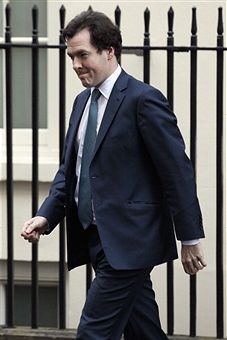Will fuel ever stop being a cause of political discontent? It was the fuel protests of 2000 that first tarnished Blair’s electoral allure, according to some of the advisors who were around him at the time. It was a question about petrol prices that provided Gordon Brown with one of the most awkward moments of his premiership. And it was the same issue that punctuated the build-up to George Osborne’s Budget and Autumn Statement last year, and now to next month’s Budget too. The Mail, the Sun, Tory backbenchers and others are once again lobbying the Chancellor to act.
Of course, there are clear reasons why fuel is always such a hot topic. For starters, its price fluctuations are felt by millions and register, in plain black and white, on their bank statements and credit card bills every month. And then there’s the extra fact that it is taxed so high. With VAT on top of fuel duty, the effective tax on diesel, for instance, is around 140 per cent. It’s pretty much the highest level in the EU, as the Mail points out this morning. But even putting the comparison aside, it’s a politically toxic levy. For every pound spent by motorists on diesel, almost 60p goes to the Exchequer.
No doubt this helps explain why Osborne appears to more resistent, this time, to cutting fuel duty. Judging by the tone of his remarks at the weekend, the 3p rise in duty scheduled for August will remain — after which point, his ‘fair fuel stabiliser‘ will kick in anyway. As he put it, ‘fuel duty is six pence lower today than it would otherwise have been so I have absolutely shown a willingness to respond to the international situation and we have taken action this year.’ He’s probably also reminding himself of this ONS report, from November last year, which showed that the ‘proportion of spending on petrol and diesel received by Government’ has generally been falling since 2004 — and has fallen further since the coalition took over.
But I do wonder whether Osborne might surprise us still. Thanks to the slippage of his fiscal plans, and the predations of the credit rating agencies, the Chancellor has much less space to operate in than he would have hoped. But the strategist in him will know that, if space be found, operating on fuel prices will probably produce some of the strongest political results.






Comments